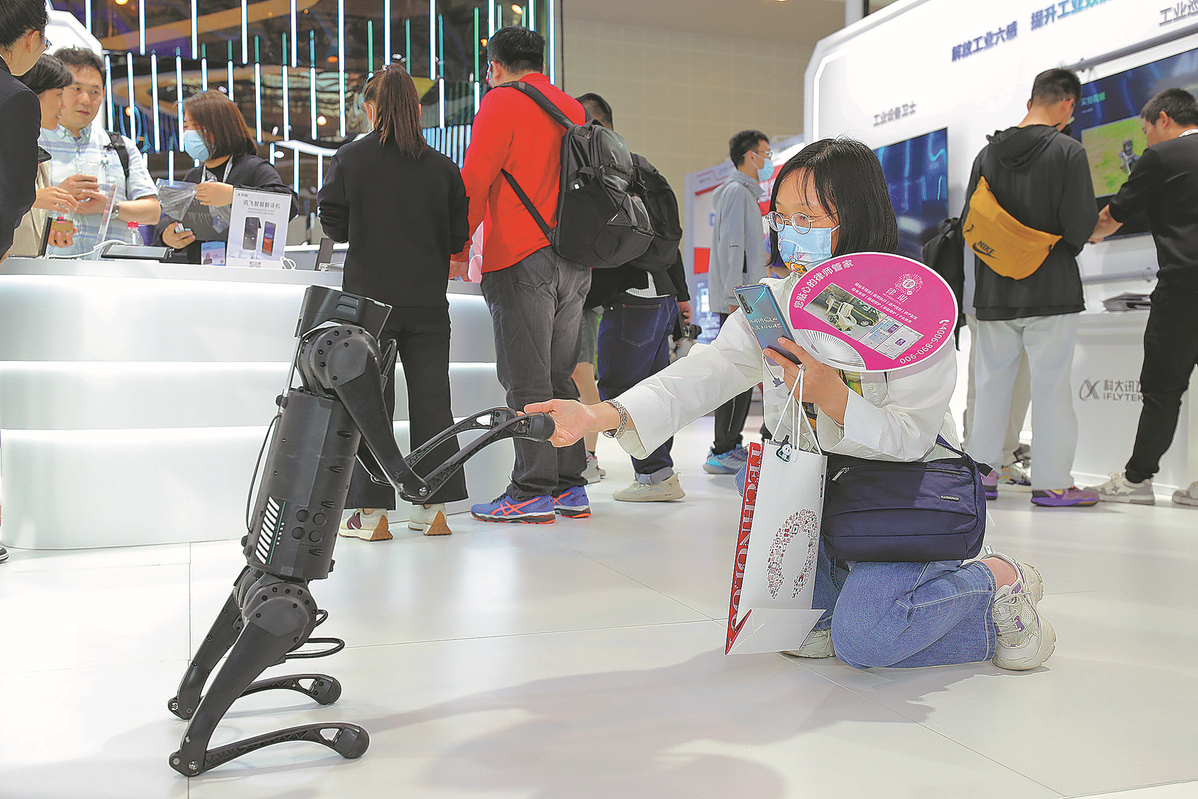Country achieves crucial technological breakthroughs


Progress made
Huang Hanquan, head of the Academy of Macroeconomic Research, said China has made progress in key technologies in strategically important sectors, showing that scientific innovation plays an increasingly bigger role in driving economic growth. The academy is part of the National Development and Reform Commission, or NDRC.
As the innovation-driven development strategy gains traction, technological innovation continues to empower the real economy and new industries, and driving forces continue to develop and grow, Huang said.
Denis Depoux, global managing director of consultancy Roland Berger, said: "China has demonstrated its innovation capability. It is leapfrogging in several fields, gaining leadership globally in areas like the electric vehicle chain — from batteries to charging infrastructure, photovoltaic panels, wind turbines, nuclear and telecommunications equipment."
The nation's industrial modernization, huge consumption potential, and growing innovation prowess are three strong points that create a new China story for the world, he added.
Last month, the tone-setting Central Economic Work Conference made the construction of a modern industrial system through technological innovation the top priority for economic work this year.
The conference called for efforts to develop new productivity boosters, and produce new industries, models and impetus with cutting-edge technologies.
Chen Zhichao, an assistant researcher at the Xi Jinping Thought on Economy Study Center, which is part of the NDRC, said the call will inject strong impetus into the country's high-quality economic development.
Compared with traditional productivity tools driven by elements such as labor, land and capital, Chen said new productivity boosters are led by technological innovation, which will promote the transformation of the economic growth mode.
"Challenges still exist, and more efforts, including higher fiscal investment and stimulation of social capital, are needed to increase investment in fundamental and applied research, and cultivate high-end innovation-oriented talent," Chen added.
Jin Zhuanglong, minister of industry and information technology, the country's top industry regulator, said China will step up the development of a number of strategic emerging industries such as biomanufacturing, commercial aerospace, and the low-altitude economy.
The ministry will also open up new paths for future industries such as quantum and life sciences, and make extensive use of digital intelligence and green technologies to accelerate the transformation and upgrading of traditional industries, Jin said.
"Technologies such as AI can empower China's new industrialization push, and their applications in industries such as manufacturing and healthcare will be an important symbol of a new round of technological revolution and industrial transformation," he added.
Goldman Sachs Research forecast in a report that breakthroughs in generative AI, represented by applications such as ChatGPT, can drive a 7 percent, or almost $7 trillion, increase in global GDP and raise productivity growth by 1.5 percentage points over a 10-year period.
Well aware of the opportunities ahead, established tech heavyweights such as Alibaba, Tencent, Baidu, ByteDance and Huawei, as well as thousands of startups in China, are scrambling to develop and embrace large language models. Such models are computer algorithms fed with huge amounts of data, which are key to supporting ChatGPT-like applications.
A report, released by the Beijing Municipal Science & Technology Commission, said that as of October, China had developed at least 254 AI large language models.
Chi Xiannian, a senior engineer at the China Center for Information Industry Development, a think tank affiliated with the Ministry of Industry and Information Technology, said finance, manufacturing, governance and transportation are the top industries in China to use AI large language models.


















